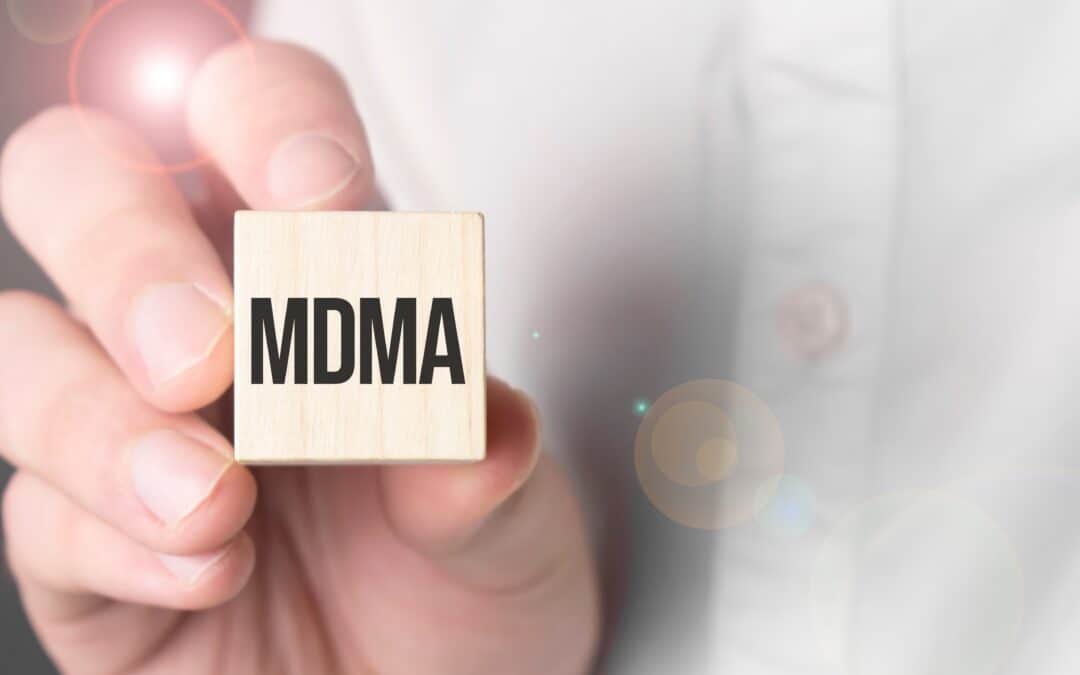A disturbing trend in prescription drug abuse connects with the rising number of healthcare providers relying on stimulant prescription medications for treatment.
However, amphetamines successfully treat conditions such as ADHD, narcolepsy, and obesity despite their addictive properties. Unintentional addiction is one of the effects of amphetamine abuse. Furthermore, serious health risks are a concern with long-term abuse of these drugs.
What Are Amphetamines?
Amphetamines speed up the messages between the brain and the body, which facilitates the effective treatment of conditions such as ADHD, obesity, and narcolepsy (a sleep disorder). These drugs increase energy levels and improve focus, but also have a euphoric effect that is pleasurable.
Patients utilizing these medications can experience adverse side effects, such as breathing problems, anxiety, confusion, and, in the worst cases, seizures. For these reasons, physicians must closely monitor the dosage and side effects patients experience.
Names of Amphetamines
Common street names for illicit amphetamine use include:
- Bennie or Bennies: Benzedrine to treat nasal congestion
- Molly, Adam, Beans, Biscuit, Clarity, Disco Biscuit, Hug Drug, Lover’s Speed, Peace: Ecstasy or MDMA with no legal treatment usage in the United States
- Speed: Adderall, Dexedrine, DextroStat, and Desoxyn to treat ADHD and narcolepsy
- Uppers: Adderall, Ritalin, Concerta to treat ADHD
Methamphetamines are highly addictive stimulants that directly affect the central nervous system (CNS). A common brand name for methamphetamine is Desoxyn, for the treatment of obesity, narcolepsy, and ADHD. Street names include Crank, Black Beauties, Ice and Meth. Methamphetamines can have severe side effects that involve blood pressure and the heart. Long-term abuse can be fatal.
Effects of Amphetamine Use
There is a high probability of misuse, abuse, and unintentional addiction when taking amphetamines. The effects of amphetamine abuse can have an intense impact on the central nervous system (CNS), resulting in overdose or death depending upon the form of administration.
Physicians must assess their patients for the tendency to misuse or abuse their medication and educate them on the adverse effects that could occur. It is essential to gain an education on the signs of prescription drug addiction when someone close begins utilizing amphetamines.
Short-Term Amphetamine Effects
Common short-term side effects of amphetamine abuse can include any of the following:
- Bladder pain, frequent urge to urinate, or bloody or cloudy urine
- Agitation, anxiety, nervousness
- Moodiness
- Depression
- Lower back or side pain
- Feelings of unreality
- Delusions of persecution, mistrust, suspiciousness
- Emotional overreactions
- Sense of detachment from self or body
- Dry mouth
- Loss of appetite and weight loss
- Stomach ache
- Voice changes
Long-Term Amphetamine Effects
Long-term illicit use of amphetamines can induce the following effects:
- Breathing difficulties
- Cardiac arrhythmias (fluctuations in heartbeat)
- Skin disorders
- Ulcers
- Convulsions
- Physical collapse, extreme fatigue
- Dizziness
- Loss of coordination
- Psychosis and changes in mentality
- Behavioral disorders
- Mood changes
Effects on Organs
The long-term effects of amphetamine abuse is an adverse effect on specific body organs. The article researching Amphetamine Toxicity in the National Library of Medicine points to life-threatening symptoms involving the heart.
Cardiomyopathy, palpitations, tachycardia, and elevated blood pressure are only a few conditions they mention. Liver damage comes from misuse or abuse of Adderall. Respiratory distress involves lung functions. Gastrointestinal disturbances involve constipation, diarrhea, and upper abdominal pain.
Cognitive Effects
Methamphetamine is a dangerous amphetamine that can cause permanent damage to the neural pathways of the brain. One of the most widely abused drugs worldwide, meth can lead to attention deficits, memory loss, and cognitive decline.
The combination of meth-induced neurotoxicity and neuroinflammation can lead to neuronal cell death. Some studies suggest that methamphetamine abuse can lead to the development of Parkinson’s Disease.
Overdose Signs
A combination of personal factors, such as underlying physical condition, the type of amphetamine, route of administration, and dosage, directly connect to specific amphetamine overdose signs and symptoms.
The same factors determine how intense withdrawal symptoms can be during stimulant detox. Stimulant overdoses are potentially life-threatening emergencies, the same as stimulant toxicity and overamping. It is often difficult to determine the levels of usage that would initiate an overdose.
The signs and symptoms of stimulant overdose can be any of the following:
- Irritability, confusion, aggression, agitation, and dizziness
- Dilated pupils and blurred vision
- Panic or extreme anxiety and escalating anger
- Mood swings
- Rapid breathing, fast heart rate, or arrhythmias (fluctuating heartbeat)
- Nausea or vomiting and diarrhea
- Overheating or excessive sweating
- High blood pressure, chest pains or tightness
- Hallucinations or psychosis
- Dark urine
- High body temperature
- Fainting, loss of consciousness
- Inability to speak
- Loss of bladder control
Most Commonly Prescribed Amphetamines
Healthcare providers responsible for treating attention-deficit hyperactivity disorder, obesity, and narcolepsy resort to the use of a short list of medications. Adderall. Ritalin and Concerta are the primary treatments for ADHD.
Dexedrine, DextroStat, and Desoxyn are prescriptions for obesity and narcolepsy. All of these medications are highly addictive, and unintentional misuse and abuse occur quickly.
Risks of Amphetamine Abuse
Taking amphetamines as directed on a short-term basis is safe and effective. Crossing the line to take prescription medication other than prescribed leads to misuse, abuse, and addiction.
The effects of amphetamine abuse can lead to the misconception among teens and young adults that taking these drugs improves cognitive performance and focus.
This belief leads to taking prescription medication belonging to others and illicit medicines bought on the street where amphetamines may contain unknown substances.
Withdrawal Symptoms
When experiencing a substance use disorder, any reduction in medication dosage or any attempt to stop using the drugs will initiate withdrawal. Many people who try to detox without the help of medical professionals in a medical setting will fail and relapse.
Withdrawal symptoms are challenging to manage, but with experience and proper protocols, detox can be successful. It is essential to seek a facility that offers medical management during detox for the best outcomes.
Stimulant withdrawal symptoms can include:
- Mood swings, depression, irritability, anxiety, and panic attacks
- Depression, paranoia, and difficulty concentrating
- Sleep disruptions and nightmares
- Intense cravings for the drug
- Headaches, body aches, and plains
- Hallucinations
Treat Amphetamine Use Disorder in Tennessee Today
Every substance use disorder is different, and learning as much as possible about the treatment of a specific disorder can reduce anxiety and fear.
Detox West Tennessee offers many types of detox programs geared towards particular substance use disorders. In addition, their gender-based detox programs can be beneficial for certain circumstances.
Contact Detox West Tennessee for more information or to tour this ideal location.


